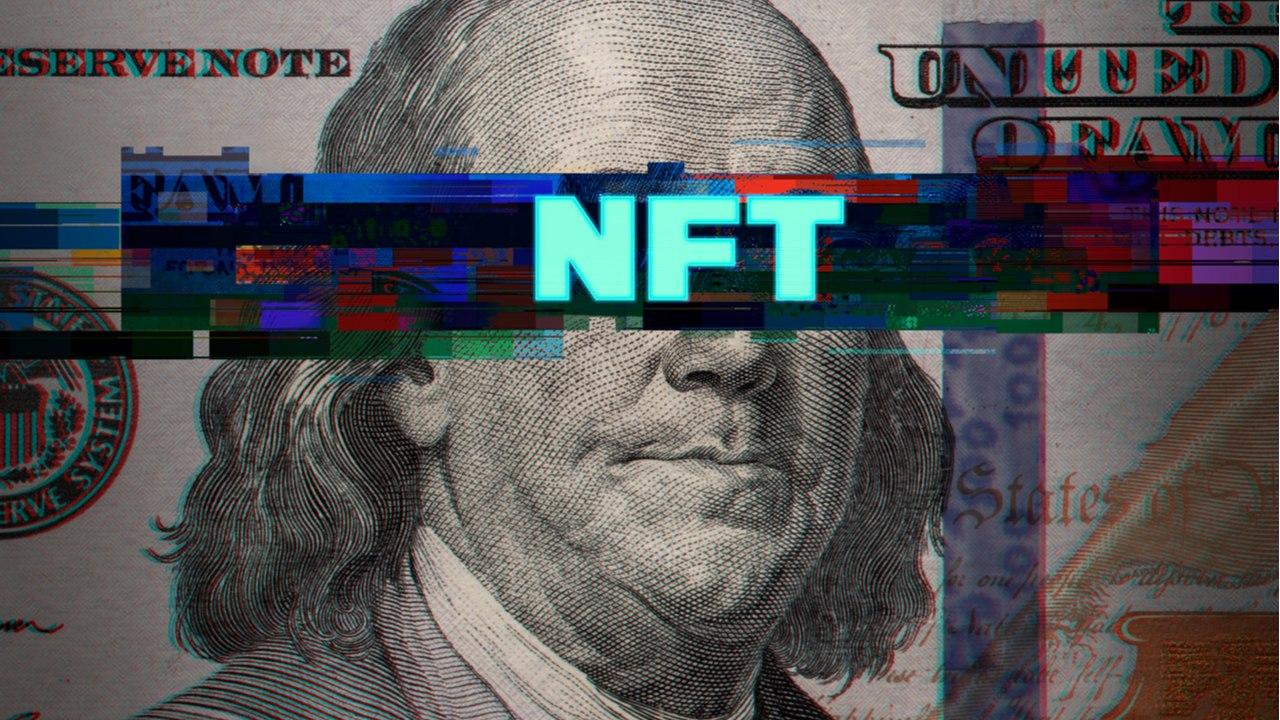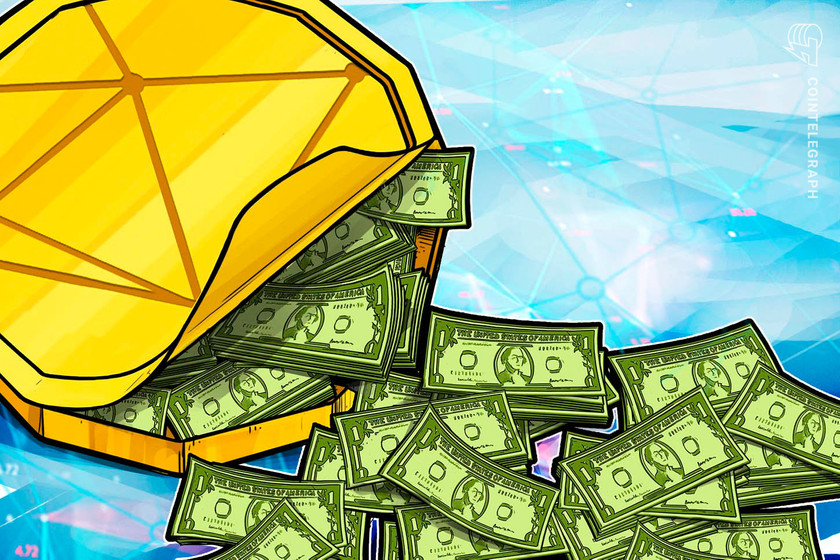
The majority of Bitcoin daily trading volume on exchanges is fake, according to a new report from Forbes. Forbes examined 157 crypto exchanges around the world and concluded that more than half of the exchanges’ reported Bitcoin (BTC) trading volume “is likely to be fake or non-economic.” Trading volume data is likely inflated due to […]
The post Over Half of All Daily Bitcoin Trading Volume on Crypto Exchanges Are Bogus, According to New Forbes Study appeared first on The Daily Hodl.

Securities and Exchange Commission regulators should move to protect investors from traders who distort the NFT market with manipulative trades — and they probably will soon.
Studies show that most people who attempt to wash trade nonfungible tokens (NFTs) are unprofitable. But that doesn’t stop them from trying, which makes it a glaring regulatory and enforcement issue for the industry.
In wash trading, manipulators buy and sell an asset between themselves to create the appearance that the asset is in higher demand and, therefore, worth more than it would be otherwise. With NFTs, wash trading is fairly straightforward: Imagine an investor holds $1 million in Ether (ETH). The investor mints an NFT and proceeds to sell it to themself for all the ETH they own. The transaction is then on the blockchain for $1 million in ETH. The price of the NFT has been set through a wash trade to the benefit of the individual who minted the NFT.
It might be tempting to think that this is a “victimless” crime since it’s unlikely any money actually changed hands if it was a wash trade, but that’s false. By rewarding allegedly fake high-volume traders with real money, NFT investors stand to lose millions to scammers, and legitimate traders may be fooled into overpaying for their investments.
Related: GameFi developers could be facing big fines and hard time
These fraudulent transactions also drive Gresham’s Law (bad money drives out good money) in crypto, driving out legitimate investors and traders as the exchange’s reputation is destroyed.
When it comes to NFTs, however, the rules are not so clear. Such tokens may not be securities, so the same laws and regulations governing securities trading may not apply to them.
Wash trading has been barred in the United States since the passing of the Commodity Exchange Act in 1936 in response to its popularity as a manipulation tool. Since then, however, the Securities and Exchange Commission and Commodities Futures Trading Commission have carefully scrutinized markets and brought numerous enforcement actions for “wash traders,” thereby adding a degree of safety to the securities and futures markets.
According to the SEC, “Wash trading is an abusive practice that misleads the market about the genuine supply and demand for a stock.” Meanwhile, the U.S. Internal Revenue Service prohibits taxpayers from deducting losses that result from wash sales, so it is entirely possible that wash trading NFTs could result in an enforcement action. It hinges on how NFTs are classified by regulators.
Accepting the idea that cryptocurrencies tend to be volatile, along with the slow pace of enforcement actions against new assets like NFTs, it seems natural that many sellers will try to inflate their asset’s value to attract new buyers and earn a profit. NFT buyers should think twice and do their due diligence before making a significant investment into an NFT.

It may seem like they are getting a valuable asset because of the number or size of transactions in which the investment has been involved, but the truth may be that the asset was only bought and sold between two wallets owned by the same person making the asset appear more in demand that it actually is.
Even with laws and enforcement actions, we still see wash trading in the regular securities and commodities market, so you can be certain it exists in newer and evolving markets. Hopefully, the SEC is already working on enforcement in the NFT market. Investigations are generally nonpublic, so some traders may already be in regulators’ sights. It’s a safe bet that in the long run, federal regulators will catch up with this new asset class, and wash trading among NFTs will be reined in as well.
Related: Clever NFT traders exploit crypto’s unregulated landscape by wash trading on LooksRare
The SEC should move to protect investors, first by ruling that NFTs will be treated like securities, and then monitoring exchanges for signs of manipulation as they do for other asset classes.
Brendan Cochrane, Esq., CAMS is the blockchain and cryptocurrency partner at YK Law LLP. He is also the principal and founder of CryptoCompli, a startup focused on the compliance needs of cryptocurrency businesses.
This article is for general information purposes and is not intended to be and should not be taken as legal or investment advice. The views, thoughts, and opinions expressed here are the author’s alone and do not necessarily reflect or represent the views and opinions of Cointelegraph.
 Data indicates the non-fungible token (NFT) marketplace Opensea has crossed $20 billion in all-time sales. The leading NFT marketplace has seen more than 1.2 million traders leverage the platform since the market’s inception in 2017. 1.2 Million Opensea Traders and $20 Billion in Sales Volume Metrics show that the NFT marketplace Opensea has surpassed $20 […]
Data indicates the non-fungible token (NFT) marketplace Opensea has crossed $20 billion in all-time sales. The leading NFT marketplace has seen more than 1.2 million traders leverage the platform since the market’s inception in 2017. 1.2 Million Opensea Traders and $20 Billion in Sales Volume Metrics show that the NFT marketplace Opensea has surpassed $20 […] Chainalysis, one of the leading blockchain and cryptocurrency auditing firms, has issued a report indicating signs of significant wash trading activity involving NFTs. In these operations, some actors effectively sell their assets to themselves, with the intention of increasing the floor price of the NFTs to sell them at a higher price later. However, this […]
Chainalysis, one of the leading blockchain and cryptocurrency auditing firms, has issued a report indicating signs of significant wash trading activity involving NFTs. In these operations, some actors effectively sell their assets to themselves, with the intention of increasing the floor price of the NFTs to sell them at a higher price later. However, this […]
The SEC asserts that the defendants unlawfully gleaned more than $700,000 through a wash-trading scheme that targeted exchanges offering market maker rebates.
The U.S. Securities and Exchange Commission has filed a complaint against two Robinhood users over an alleged wash-trading-based arbitrage scheme that utilized meme stocks.
According to a Sept. 27 complaint, defendants Suyun Gu and Yong Lee took advantage of differing trading fee schedules offered by different retail brokers and exchanges to extract arbitrage while wash-trading.
By trading between venues that offer rebates to market makers and those that do not charge fees to market takers, the SEC estimates they generated more than $1.5 million worth of rebates in total through the alleged wash trading scheme.
Gu and Lee are believed to have been able to keep nearly half of the rebates as profits, with the commission estimating they profited $668,671 and $51,334 respectively while wash-trading during February through April of this year. The pair are believed to have executed 11,400 and 2,300 trades through the scheme respectively.
The pair are accused of targetting put options contacts for popular meme stocks including GameStop (GME) and AMC Entertainment (AMC). According to the complaint:
“Gu and Lee Believe that other marker participants’ interest in buying ‘meme stocks’ and related price increase would make put options on those stocks less attractive, making it easier for Gu and Lee to trade with themselves.”
While the trading venues used by the pair are not explicitly named in the court documents, it appears the pair were using the popular fee-free investment app Robinhood. The documents state that Gu concocted the scheme after watching the CEO from “Broker-dealer B” outline in a February court testimony that his firm does not charge taker fees to its customers — the same month that Robinhood CEO Vlad Tenev testified before congress regarding market volatility related to GME and other meme stocks.
Related: SEC is ‘open to discussion’ when it comes to crypto: Kraken chief lawyer
So-called “meme stocks” like AMC and Gametop became widely popular as a result of the Robinhood and Reddit-based pump and dump group r/wallstreetbets saga earlier this year.
Robinhood was the subject of controversy in January after the platform halted trading on GME amid the notorious short squeeze against hedge funds that was led by the fiery-eyed Reddit community r/wallstreetbets.
The group responded by immediately converging on crypto, with Dogecoin pumping by 980% on January 28 — the same day that Robinhood acted to dampen the frenzied meme stock speculation.
Robinhood has since estimated that Dogecoin accounted for 62% of its crypto revenues during Q2.

New research asserts that EOS and ETH were wash-traded on exchanges to manipulate prices during EOS’s multi-billion dollar ICO.
New research has shed more light on the crypto industry’s largest-ever token sale, alleging that foul play may have been afoot during EOS’s initial coin offering (ICO) four years ago.
Researchers from the University of Texas have raised fresh concerns regarding Block.one’s record $4.362 billion ICO for the EOS blockchain in 2017 and 2018. The highly-anticipated project was backed by industry heavyweights including PayPal co-founder Peter Thiel alongside billionaire hedge fund managers Alan Howard and Louis Bacon. The research does not accuse Block.one itself of any wrongdoing and the company has cited a report stating there was no evidence it was involved.
On Aug. 31, Professor John Griffin of the Austin McCombs School of Business and financial analysis firm Integra FEC published their findings in a paper titled “Were ETH and EOS Repeatedly Recycled during the EOS Initial Coin Offering?” — alleging that wash-trading played a key role in EOS’s price discovery. Bloomerbe
According to the paper and outlined in an investigation by Bloomberg, EOS was allegedly wash-traded on the Binance and Bitfinex cryptocurrency exchanges in an effort to artificially inflate the prices. Wash-trading describes the process where an entity simultaneously acts as the buyer and seller at the same asset to artificially bolster volume or manipulate prices.
Griffin wrote that artificial demand from suspect accounts created the illusion of demand for the token and pushed prices up:
“First, it directly manipulated EOS’s offering price upward through the extra buying and inflated the market value of the token. Second, it created the false impression of value of the token which enticed others to want to purchase the ICO token.”
The research allegedly identified 21 accounts that recycled EOS tokens during the ICO. Funds identified as suspect amounted to 1.2 million ETH worth around $815 million at the time. Ether was the sole cryptocurrency used to buy EOS during the year-long ICO.
The analysis claims that Ethereum accounts were created in order to repeatedly purchase EOS over time. It claims that a "significant portion" of the Ether raised during the token sale appears to have been "recycled by transferring the ICO contributions through a series of obfuscating intermediary accounts and finally arriving at Bitfinex."
“2.895 million Ether ($1.721 billion USD), or 39% of the Ether raised in the crowdsale, are also traced from the ICO crowdsale wallet back to Bitfinex.”
Griffin did not identify the owners of the accounts or point the finger toward Block.one regarding the alleged wash-trading, but noted: “These suspicious accounts accounted for almost a quarter of EOS purchases by the end of the crowdsale.”
Professor of law at Cornell Law School, Robert C. Hockett, said that he worked for more than one month on the story alongside media outlet Bloomberg — which published its findings on Sept. 2.
Worked with the Bloomberg buddies for a month on this one. Rather remarkable story. Vulgar pre-'33 securities scandals are apparently being crudely recapitulated across the crypto space now. https://t.co/Ogu5nSf6oF
— Robert Hockett (@rch371) September 2, 2021
According to Bloomberg, Block.one responded to the paper by referencing a July document authored by law firm Clifford Chance LLP that asserted there was “no evidence that Block.one purchased tokens on the primary market.”
Related: Startup Darling EOS Cashes In Millions Of ETH As ICO Scorn Continues
The same John Griffin published a paper in October 2019 titled “Is Bitcoin Really Un-Tethered?” that claimed the leading stablecoin Tether (USDT) was wash traded to influence Bitcoin prices during the 2017 bull market. Speaking to Cointelegraph in Feb. 2020, the firm behind Tether, iFinex, labeled the claims “reckless and false.”
Manipulation or otherwise, EOS has largely fallen out of favor with crypto traders and investors. Since ranking among the top five crypto assets by market cap in mid-2018, EOS has since tumbled to rank 35th by capitalization.
The token currently trades for $5, down 77% from its April 2018 all-time high of $22.70.